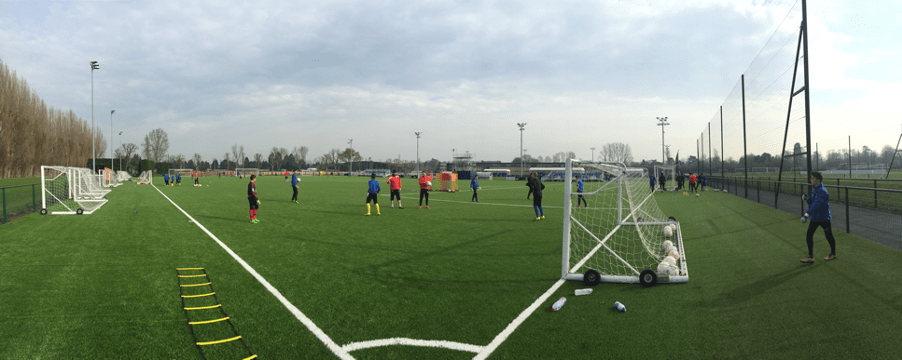What does a football coach look for in an artificial grass pitch?
- 04/08/2020
By Jamie Forrester
Ask most football coaches and they will always want to work on the best possible surface, as close to perfection as they can get. Not every club can afford this and not every coach has this luxury. But let’s use this as a starting point for what a coach would ideally choose for his coaching surface.
A coach looks for a surface that allows the ball to roll freely, isn’t too fast or too slow. They will work in both small and larger areas, often repeating exercises on the same spot, which can cause stress to the surface. They really don’t need this, as it may impact on the ball roll or cause problems with player movement. A coach, above all wants a safe surface, so the player isn’t worried about injury and can focus 100% on the session.

We know that artificial pitches are built to replicate real grass, but have often been seen as bad for the game. But we also know that coaches benefit from the improved and consistent performance a good synthetic turf surface brings to their coaching sessions. Players are more able to develop their skills and coaches are better able to make the most of their time coaching. It is safe to say that with the improvement in surfaces, many coaches, at professional, amateur and community level, actually prefer to deliver coaching sessions on artificial pitches.
So why do the majority of clubs at EFL, National League and below, still use natural grass training pitches from September through to April, which are often well below what is considered a decent playing surface? During these long wet, dry or frosty months, natural grass pitches can be heavy, boggy, waterlogged, uneven, bobbly and sometimes dangerous conditions. Surely, this is not the best way for coaches to develop their players and teams? Arguably player development and enjoyment decreases too.

On artificial grass pitches, warm-ups, drills and practice matches, all within training sessions, and in good or extreme weather conditions, can be conducted effectively. This promotes a positive, consistent training environment for coaches, irrespective of the standard of the player. Whether it is 7 year olds being coached in the evening or elite players ahead of a big match, to prepare and develop skills, the same needs apply for suitable, safe and effective training pitches.
Anecdotal feedback shows that coaches achieve more in a session on a good surface than poor. With top level natural pitches restricted to the top end of the professional game, synthetic turf really is the answer.
To find out more about artificial turf surfaces for football,
contact Jamie Forrester on 07825 368059
jamie.forrester@ccgrasseurope.com




